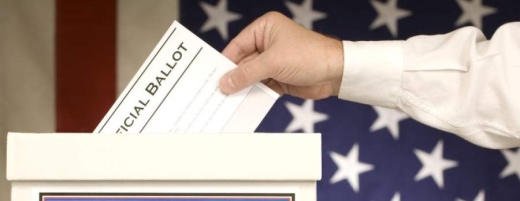In a 3-2 vote April 28, Harris County commissioners voted to invest up to $12 million into an effort by the Harris County Clerk's Office to expand the mail-in ballot program, including funding to process as many as 2.4 million mail-in ballots in 2020 elections.
"I am not waiting on the state for answers," Harris County Clerk Diane Trautman said. "I am preparing for an expanded mail ballot program in addition to a safe and secure in-person voting process. No matter what the courts and the state decide for the July and November elections, we must be prepared for an increase in mail ballots, which we have already seen in our office."
An ongoing debate
Mail-in ballots are typically available in Texas to voters for one of four strict reasons: the voter is age 65 or older; the voter has a disability; the voter is a resident of Harris County but will not be able to vote in the county during the election; or the voter is in jail but is otherwise eligible to vote. Voters who wish to vote by mail must fill out an application indicating the reason and be approved by the county clerk.
The $12 million investment in Harris County comes amid a debate in Texas over whether the coronavirus pandemic is a legitimate reason for a voter to request a mail-in ballot under the umbrella of "disability." On April 17, a state judge issued a temporary injunction allowing voters to request a mail ballot based on lack of immunity to the coronavirus.
However, in a legal update submitted to Harris County commissioners, Trautman said the state is likely to appeal the injunction. Texas Attorney General Ken Paxton has issued an informal letter of advice April 14 in which he wrote that fear of contracting the coronavirus, absent any sickness or physical condition, does not qualify as a disability.
Meanwhile, Harris County officials are preparing more than 100,000 mail-in ballot requests for primary runoff elections set to take place in July, compared to around 63,000 requests in primary elections that took place in March. Mail-in ballot requests for the November election could range from 1 million-2 million or more. Trautman said the county needs to move forward as soon as possible on preparing for the influx.
"In an election such as November, we should’ve had all of these things already decided by April 15, so we’re behind already," she said. "You can’t turn on a dime for this November election. Now would be the time to make these decisions."
County plans
The $12 million approved by commissioners April 28 includes money for as many as 2.4 million vote-by-mail applications as well as funding for the staff and personal protective equipment to operate in-person voting in the 2020 elections. Funding also covers a voter outreach program to educate voters on the expanded availability of mail-in ballots.
A total of 1.2 million vote-by-mail applications would come at the cost of about $8 million, and 700,000 vote-by-mail applications would cost the county about $3 million, said Michael Winn, director of elections with the Harris County Clerk's Office. Commissioners opted to fund the clerk's office with "up to $12 million" with the understanding that money not spent is put back in the general fund. Part of the expense is expected to be reimbursed with federal money through the Coronavirus Aid, Relief and Economic Security Act, of which the county received $426 million.
"There are other things that we could spend the $426 million on, [but] I can't think of anything more important than protecting our democracy," Precinct 1 Commissioner Rodney Ellis said.
Precinct 3 Commissioner Steve Radack and Precinct 4 Commissioner Jack Cagle voted against the measure. Both dissenting commissioners said the plans, as presented to the court, were too vague. Cagle said he was against funding the entire $12 million at once without seeing more details of how the money would be spent, recommending instead to provide $1 million in funding for the July elections and revisiting future needs later on.
Cagle also pointed out that providing funding for 2 million mail-in ballots assumes that substantially more people will request a mail-in ballot in 2020 than showed up to vote in-person in past elections. About 1.3 million total ballots were cast in Harris County in the 2016 election, and 1.2 million were cast in the 2018 election.
Winn said the county needs to be prepared for that possibility.
"If [those voters] are eligible and want to vote by mail, we have to be able to provide that for them," he said.
Winn said the county is not planning to close any of its polling locations where voters can vote in-person. He said the clerk's office would meet with the leaders of local political parties April 29 to discuss plans for in-person voting for the July runoffs, including how to best train poll workers, how to sanitize equipment and how far apart equipment should be placed.
Commissioners also instructed the clerk's office to look into the possibility of sending vote-by-mail applications to all county residents age 65 and older rather than wait on them to request one. Officials are expected to bring details back to commissioners at a future court meeting.





